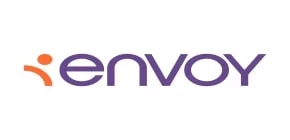FY 2021 H-1B cap season is approaching, making now the perfect time to brush up on the petition process
The H-1B is one of the most popular, yet most challenging to acquire of all the visa categories. Case in point: In 2018, U.S. Citizenship and Immigration Services (USCIS) received 190,000 petitions, more than 105,000 in excess of the cap. Due to several challenges, including the current immigration landscape, early preparation and a strong foundational knowledge of the lottery process is crucial for employers who want to secure work authorization for their foreign-born employees.
H-1B lottery fundamentals: 4 things you need to know
What is the H-1B visa?
The H-1B visa provides work authorization to foreign nationals employed in "specialty occupations". These are roles that require at least a bachelor's degree, or equivalent work experience in a specific field, in a specific field. There is no official "specialty occupation" list, and eligible roles range from computer science, biotechnology, and engineering to human resources, among others.
To qualify, a foreign national must be sponsored by an employer and paid the "required wage." The required wage is whichever is higher: the "actual wage" paid to similarly employed workers, or the "prevailing wage" for the occupation as set by the U.S. Department of Labor (DOL).
Lottery process
UPDATE: On December 6, 2019, U.S. Citizenship and Immigration Services (USCIS) announced that it will implement the H-1B electronic registration system for Fiscal Year 2021 cap season. Click here to learn more about the changes to the lottery process.
The H-1B visa is valuable for employers who need foreign talent to fill key professional roles, so demand is high for the 85,000 visas available each fiscal year. Of these new H-1B visas, 65,000 regular visas are issued and an additional 20,000 are reserved for applicants with U.S. master's degrees.
If there are more than 85,000 requests for the allotable H-1B visas, USCIS randomly selects applications through an annual lottery. In 2019, the USCIS reversed the order in which petitions are selected: regular petitions are now chosen first, and petitions towards the master's cap are chosen after. This has been said to increase the probability that master's cap candidates will be selected in the lottery compared to the previous, reversed process.
The H-1B Cap lottery opens each government fiscal year during the first five business days of April. Since 2014, the 85,000 visa quota has been met during this short period every year. Petitions selected for processing in the lottery will be notified via a USCIS receipt notice, and if the petitions are approved by USCIS, the foreign national will obtain official H-1B status and may begin working no sooner than the following October 1st.
Note that certain employers, such as institutions of higher education and select nonprofit entities, are exempt from the H-1B Cap process, and can petition for new H-1B visas without entering the H-1B Cap lottery.
For a more, check out Envoy's free on-demand
webinar,
"
A Beginner's Guide To The H-1B
Lottery."
Filing the LCA
Before submitting the H-1B petition for a foreign national, an employer must file a Labor Condition Application (also known as ETA Form 9035) with the U.S. Department of Labor ("DOL"), which establishes that the employer will pay the required wage for the position and employ the visa holder under fair working conditions. LCAs normally take seven days to be certified by the DOL, but during peak times, they can take longer. Given that there is also an LCA registration process, employers are urged to begin the LCA process well before mid-March.
As part of the filing process, the employer needs to notify its workforce at the particular worksite that it is sponsoring an employee for H-1B status. In addition, the employer must attest that it is not experiencing a work stoppage, strike or lockout at the employment location at the time of LCA submission.
Perfecting the petition
The following can help you maximize your chances of securing work authorization for your employee in the competitive H-1B lottery:
Be thorough. In addition to providing required employee documents that verify eligibility and legal status (if inside the U.S.), submitting a full scope of employer documents, such as client lists, tax returns and marketing collateral, can help establish your organization's legitimacy.
Provide detailed job descriptions. List specific, detailed job duties that describe an employee's daily activities and emphasize the importance of specific degrees and knowledge of advanced concepts. Doing so can help to avoid triggering a Request For Evidence (RFE).
Leverage technology. A centralized platform can help you streamline the paperwork process, simplify document collection and stay compliant.
Want an update on H-1B lottery changes you should watch for this year? Tune into Envoy's on-demand webinar, H-1B Lottery Changes: What You Need to Know for FY 2021 Cap Season. If you're ready to make next year your best cap season yet, click here to learn more about how Envoy can help.
The content of this article is intended to provide a general guide to the subject matter. Specialist advice should be sought about your specific circumstances.

